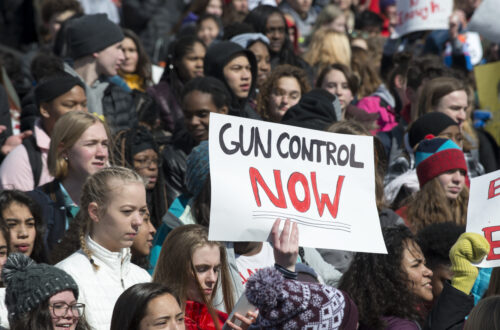There are approximately 88,000 inmates in Florida prisons, and 27% of them are over 50 years old. The prison population has more than tripled since 2008, and aging inmates are the focus of a recent settlement between Disability Rights Florida and the Florida Department of Corrections.
In July 2017, Disability Rights Florida settled a lawsuit with the FDC that addressed the needs of prisoners who are deaf, hard of hearing, and have vision and mobility disabilities. State prison officials were directed to assess inmates for disabilities during intake and move them to facilities that could accommodate their needs.
The 2017 agreement also guaranteed certain assistance for disabled prisoners, such as canes, hearing aids and audiobooks. Prison staff members were required to review disability rights and receive training on how to best assist prisoners.
Florida has the third-largest state prison population in the U.S. The state’s sentencing laws require prisoners to serve 85% of their sentence, which has led to an aging prison population. This aging population has naturally led to more inmates with physical disabilities over time.
The 2017 settlement was intended to offer more assistance to these inmates, but civil rights groups recently alleged that the FDC was not maintaining its end of the deal. The Florida Justice Initiative, along with Morgan & Morgan, P.A., joined Disability Rights Florida in investigating cases of disabled prisoners who were not given the required assistance.
Dante Trevisani, executive director of the Florida Justice Initiative, told the Florida Political Review that the Florida Justice Initiative has been involved in inmate disability rights cases since the initial case against the FDC was filed in 2015.
“We had gotten a number of complaints over the years. People complained about a wide range of problems from wheelchairs to sign language interpreters to not getting canes for people who are blind,” said Trevisani. “We decided, at some point, to pursue it as a systemic issue.”
Complaints regarding these issues continued to be submitted even after the 2017 settlement, which led to a new lawsuit this year. It was settled on Nov. 18 and reaffirmed the requirements of the past settlement.
The recent settlement also included some expansions to disabled inmates’ rights. The FDC will still be directed to track and evaluate prisoners with disabilities, but they will also be required to expand accessible facilities, ensure equal access to education, work and vocational programming, provide trained assistance, and provide access to numerous accessories that can be used to assist disabled inmates.
“It takes time, money and effort to ensure that people are getting the accommodations they need to live with dignity, independence and safety,” said Trevisani.
The biggest change included in the new settlement is that a monitor will now be appointed to inspect FDC facilities and ensure they are in compliance with the settlement agreement.
Trevisani stated that Disability Rights Florida, the Florida Justice Initiative, and Morgan & Morgan will continue to be involved with resolving disability rights cases and working with the FDC to improve prison conditions for the disabled.
“One of us [the organizations] will meet quarterly with the Department of Corrections to go over the progress of the implementation of the settlement agreement and the meeting of the various deadlines,” said Trevisani.
These meetings will also allow civil rights groups to report any problems they would like to resolve or any complaints they have received from inmates.
With this settlement agreement in place, civil rights groups are hopeful that inmates with physical disabilities will receive any and all accommodations they need within the Florida prison system.
Check out other recent articles from Florida Political Review here.
Featured Image: Barbed wire covered fence outside of a prison. Unmodified photo by www.JobsForFelonsHub.com used under a Creative Commons license. (https://bit.ly/30FFQos)





